I've researched this question heavily for the past few days and I still cannot find suggestions to my problem.
Below is an example of my dataframe titled 'dfs'. There are around 80 columns, only 4 shown in the below example.
dfs is a large dataframe consisting of rows of data reported every 15 minutes for over 12 months (i.e. 2015-08-01 00:00:00 to 2016-09-30 23:45:00). The Datetime column is in the format datetime.
...
...
I want to export (or write) multiple monthly csv files, which are snippets of monthly data taken from the original large csv file (dfs). For each month, I want a file to be written that contains the the raw data, day data (6am-6pm) and night data (6pm-6am). I also want the name of each monthly file to be automated so it knows whether to call itself dfs_%Y%m, or dfs_day_%Y%m, or dfs_night_%Y%m depending on the data it contains.
At the moment I am writing out over 180 lines of code to export each csv file.
For example:
I create monthly raw, day and night files by grabbing the data between the datetimes listed below from the index Datetime column
dfs201508 = dfs.ix['2015-08-01 00:00:00':'2015-08-31 23:45:00']
dfs201508Day = dfsDay.ix['2015-08-01 00:00:00':'2015-08-31 23:45:00']
dfs201508Night = dfsNight.ix['2015-08-01 00:00:00':'2015-08-31 23:45:00']
Then I export these files to their respective outputpaths and give them a filename
dfs201508 = dfs201508.to_csv(outputpath+"dfs201508.csv")
dfs201508Day = dfs201508Day.to_csv(outputpathDay+"dfs_day_201508.csv")
dfs201508Night = dfs201508Night.to_csv(outputpathNight+"dfs_night_201508.csv")
What I want to write is something like this
dfs_%Y%m = dfs.ix["%Y%m"]
dfs_day_%Y%m = dfs.ix["%Y%m(between 6am-6pm)"]
dfs_night_%Y%m = dfs.ix["%Y%m(between 6pm-6am)"]
dfs_%Y%m = dfs_%Y%m.to_csv(outputpath +"dfs_%Y%m.csv")
dfs_day_%Y%m = dfs_day_%Y%m.to_csv(outputpath%day +"dfs_day_%Y%m.csv")
dfs_night_%Y%m = dfs_night_%Y%m.to_csv(outputpath%night +"dfs_night_%Y%m.csv")
Any suggestions on the code to automate this process would be greatly appreciated.
Here are some links to pages I researched:
https://www.youtube.com/watch?v=aeZKJGEfD7U



